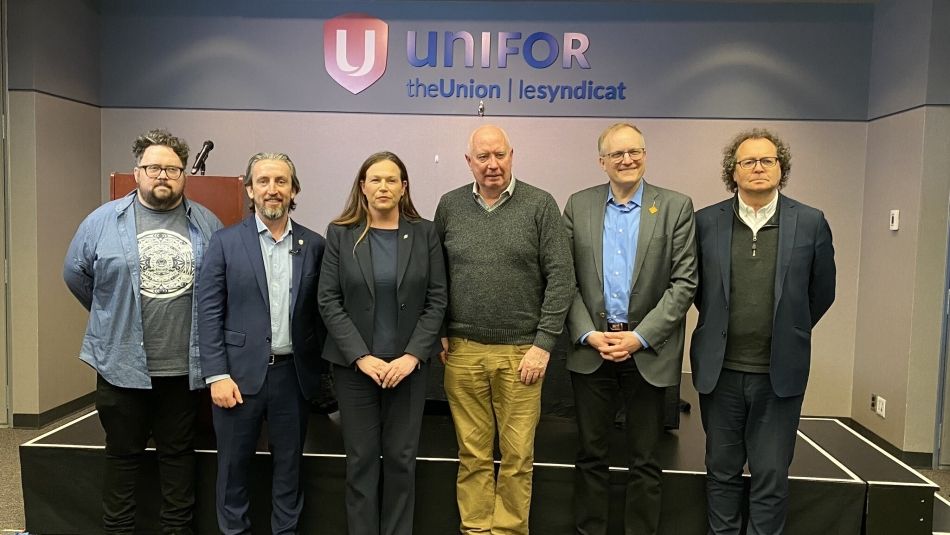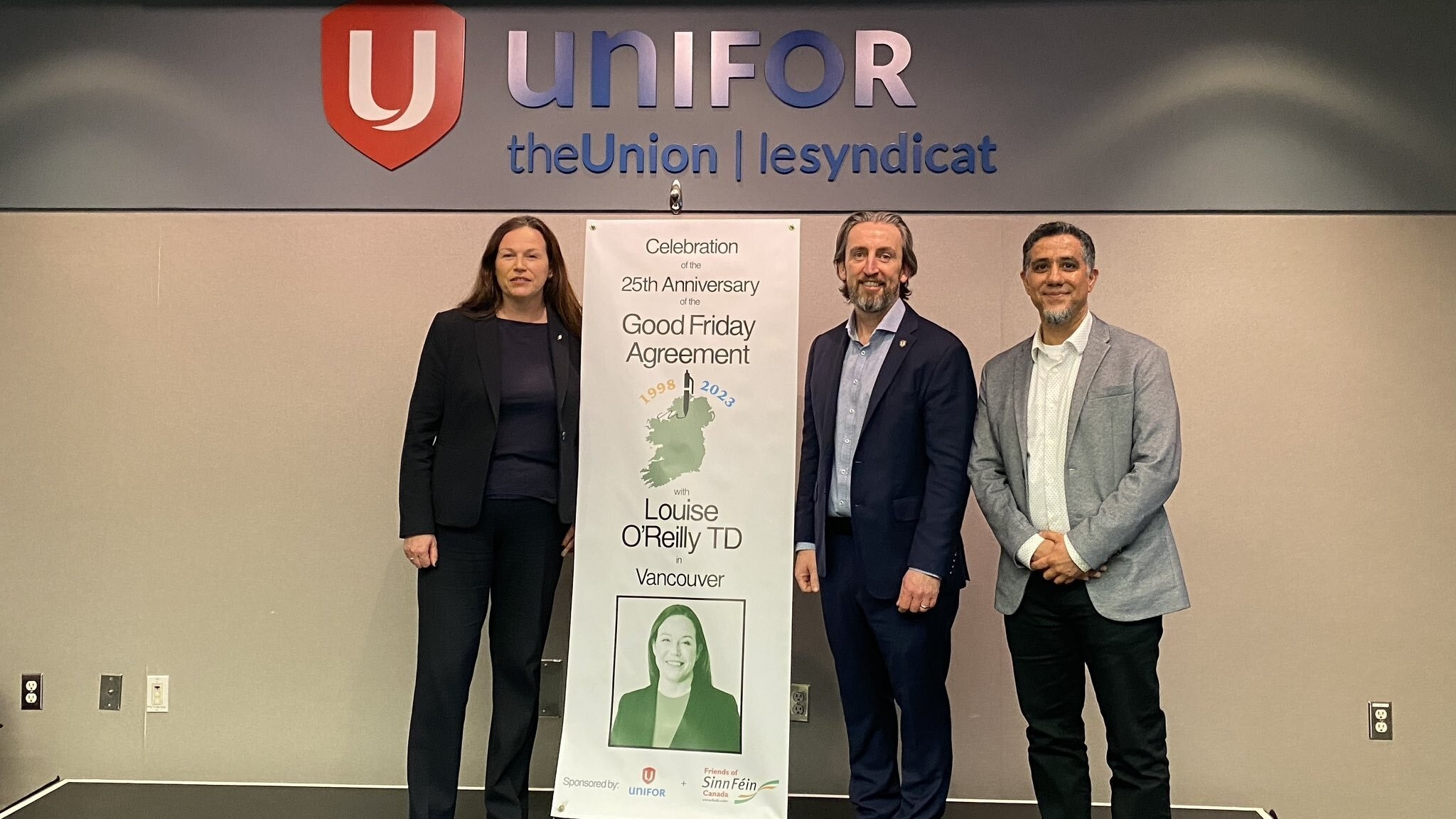
Share
For Gavin McGarrigle, the Good Friday Agreement hits too close to home.
The Unifor Western Regional Director spoke of his earliest memories as a six-year-old crossing the border between Ireland and Britain frequently with his family before emigrating to Canada in 1981. During those crossings, he recalls the chaos and violence.
“I can remember standing on the side of the road in front of a massive guard tower while our family’s car was ripped apart by British soldiers on patrol,” he said.
“I remember my father telling me about the Battle of the Bogside and my mother telling me how one day in Strabane, when I was just a baby, how an old man pulled her and her pram off the street just before a gun battle.”
In recognition of the 25th anniversary of the Good Friday Agreement – which marks the historic Northern Ireland peace process – Unifor hosted Louise O’Reilly, the Sinn Féin spokesperson on Workers’ Rights, Enterprise, Trade and Employment at the Local 111 hall in New Westminster, B.C. on April 11.
"I thank the men and women of Unifor and the NDP who have kept the subject of Irish unity on the agenda and who have travelled on this journey with us - we are living in the end days of partition and we will need all our allies to stick with us for the final part of this journey to unification," said O'Reilly.
"As a lifelong trade union activist and, indeed, the daughter and grand daughter of union activists, I am always at home in a union hall. It’s the best place to discuss equality and the challenges we will face in building a new and equal Ireland. Irish unity brings with it the prospect of building a new Ireland which will deliver for working people. We want to build an Ireland where workers rights are respected and where union organising is protected by the law so that union activists can do their work and serve their members."
The agreement was signed by the British and Irish governments in Belfast, Ireland, on April 10, 1998, and subsequently approved by voters across the island of Ireland in two referendums held on May 22, 1998.
Issues relating to sovereignty, governance, discrimination, military and paramilitary groups, justice and policing were central to the agreement. It restored self-government to Northern Ireland on the basis of "power sharing" and it included acceptance of the principle of consent, commitment to civil and political rights, police reform, paramilitary disarmament and early release of paramilitary prisoners, followed by demilitarisation.
McGarrigle – who was born in Derry, Northern Ireland, with family roots in Strabane in County Tyrone – said the signing of the Good Friday Agreement was an important milestone where Canada played a significant role in bringing peace to Northern Ireland.
However, the agreement is under threat due to Brexit and corporate government, both in Ireland and the U.K., said McGarrigle.
“The Irish Good Friday Agreement should be protected and expanded as a template for peace in other conflicts around the world because we know that workers thrive in peaceful and democratic societies,” he said.
The key Canadian link at the time of the troubles was British-Canadian diplomat Gen. John de Chastelian, who had been involved in the peace process since Nov. 1995. From 1997 to 2011, he was Chairperson of the Independent International Commission on Decommissioning – responsible for ensuring the decommissioning of arms by paramilitary groups in Northern Ireland.
At the Unifor event, McGarrigle said he was inspired by Irish socialist and trade union leader James Connolly and Canadian labour leader and fiery negotiator, Bob White.
“I used that inspiration to organize. We went on strike, we won our first contract, and I haven’t stopped fighting as a union representative for over 25 years with the inspiration of all these heroes still in my mind,” he said.
“And that’s why we are here tonight: to gain inspiration from what has been done, to reflect on what is possible, and to defend agreements that lead to peace and reconciliation.”
University of British Columbia professor Kurt Huebner spoke about the economics of Irish reunification at the event, while Burnaby Mayor Mike Hurley (who was born in Northern Ireland) talked about his personal experiences. NDP MP and House leader Peter Julian expanded on why supporting these agreements for peace matters here and around the world.
Unifor International Department Director Navjeet Sidhu helped draw linkages to other international struggles for peace.
“The fight for civil rights, social justice and equality are all hallmarks of the labour movement, and that is why we must continue supporting international struggles for peace,” he said.
“This includes building strong partnerships and alliances across borders and standing in solidarity with those fighting against all forms of oppression and for the right to work and live in safety and with dignity.”



